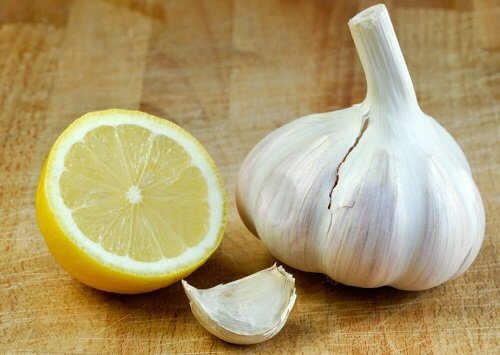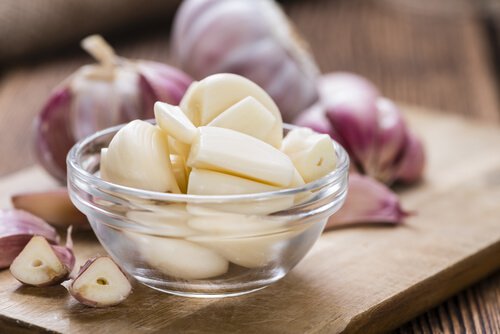An Ancient Chinese Remedy to Lower Cholesterol


Reviewed and approved by the doctor Maricela Jiménez López
There is an ancient Chinese remedy that some people believe eliminates or at least reduces cholesterol, all while following your doctor’s instructions and maintaining a healthy lifestyle.
Have you heard of it? In today’s article, we’ll explore this remedy in depth. But first, we’ll talk a little about cholesterol in general.
About cholesterol
Cholesterol is a kind of fat (also known as a lipid), which your body requires in order to function correctly. At normal levels, cholesterol is important. High cholesterol, however, could cause cardiovascular problems.
Today, many people are at high risk of cardiovascular disease. This is due to higher and higher cholesterol levels, which tend to be the result of a poor diet and an unhealthy lifestyle.
In medical terms, this high cholesterol is known as lipid disorder or hypercholesterolemia. To keep it under control, you need to undergo medical treatment and maintain a healthy lifestyle. This will reduce your risk of complications.
Experts tend to divide cholesterol into two different categories, depending on what kind of protein transports it through the blood:
- “Good” cholesterol is known as high-density lipoprotein (HDL)
- “Bad” cholesterol is low-density lipoprotein (LDL)`
Usually, doctors measure the total cholesterol level, which is a combination of the two.
We know that eating bad fats can increase your cholesterol. These fats, called “trans fats,” are found in a lot of processed foods. Being overweight, a sedentary lifestyle, smoking, and alcoholism are other factors that can increase cholesterol.
Improving your lifestyle, staying active, and following your doctor’s advice are all key to keeping cholesterol under control. Some people also think that natural remedies can help. We’ll talk more about that next.
An ancient Chinese remedy to lower cholesterol
This ancient remedy from traditional Chinese medicine combines the nutritional powers of garlic with lemon juice. These are two common ingredients that many people believe have antioxidant properties. That could make them beneficial for trying to reduce cholesterol. People who use this remedy believe that making lemon and garlic tea can enhance their antioxidant properties.
How garlic reduces cholesterol

However, the scientific evidence we have so far doesn’t support these claims. The research shows that garlic can’t provide these benefits when consumed in the “normal” way. In other words, you need specific lab conditions to get benefits from garlic.
Using lemon juice
In ancient times, people believed that the acidity in lemon was capable of eliminating anything that was adversely affecting health, whether it was a pathogen or an excess of some kind (cholesterol, for example). However, this idea has changed over time.
Today, scientists believe that the content of flavonoids, potassium, vitamin C, and antioxidants in lemons could help reduce cholesterol levels.
A study found that citrus juices inhibit low-density lipoprotein oxidation, which is the relationship between the capturing activity of free radicals, and electrophoretic mobility. Some of the conclusions were:
- The content of phenolic compounds determined by the Folin-Ciocalteau method doesn’t provide complete information about the quality and identity of the phenolic content of a sample.
- The ability to inhibit LDL oxidation doesn’t necessarily correlate with the content of phenolic compounds, which requires researchers to reevaluate using them as a predictive parameter of antioxidant activity in future studies.
- Additional research is needed to evaluate the effect of the broad variations and inter variety and establish if they are due to agricultural harvest conditions.
Discover: Eight Symptoms of a Vitamin C Deficiency
How to prepare this ancient Chinese remedy to lower cholesterol
This recipe is easy to prepare, and the ingredients are both simple to find and inexpensive.
Ingredients
- 3 lemons
- 4 c. of water
- Fresh garlic (the original recipe calls for 36 cloves)
Preparation
- Firstly, peel the garlic and finely chop or thinly slice
- Then soak the lemons in water
- After an hour, remove them from the soaking water and cut them into slices. You don’t need to peel them.
- After that, bring the water to a boil
- Once the water is boiling, reduce the heat and add the garlic and lemons
- Let this mixture simmer, and remove it from heat just before it reaches boiling again
- Remove it from the fire when it’s ready and allow it to cool down.
- Finally, when it has cooled to room temperature, store it in the fridge overnight
- You can start drinking it the next morning
Because of the strong taste, some people add a little honey. So, if you’d like to do the same, make sure to use it in moderation.
Read more: Five Remedies To Help You Regulate High Cholesterol
This remedy to lower cholesterol is a companion to a healthy lifestyle

On its own, this drink isn’t enough to reduce high cholesterol or improve your health. However, it can help you stay hydrated and it’s a good alternative to sugary and processed drinks, which are bad for your health for a variety of reasons.
If you want to try this remedy, remember that it should be part of a healthy lifestyle. Furthermore, remember to always follow your doctor’s advice to keep your cholesterol under control.
All cited sources were thoroughly reviewed by our team to ensure their quality, reliability, currency, and validity. The bibliography of this article was considered reliable and of academic or scientific accuracy.
- Gómez, L.J.G., and Sánchez-Muniz, F.J. (2000). Revisión: Efectos cardiovasculares del ajo (Allium sativum). Archivos Latinoamericanos de Nutricion 50, 219–229.
- Pérez-Jiménez, F., Ros, E., Solá, R., Godás, G., Pérez-Heras, A., Serra, M., Mostaza, J., and Pintó, X. (2006). Consejos para ayudar a controlar el colesterol con una alimentación saludable. Clínica e Investigación En Arteriosclerosis 18, 104–110.
- American Heart Association (2012). ¿Que significan mis niveles de colesterol?
This text is provided for informational purposes only and does not replace consultation with a professional. If in doubt, consult your specialist.








